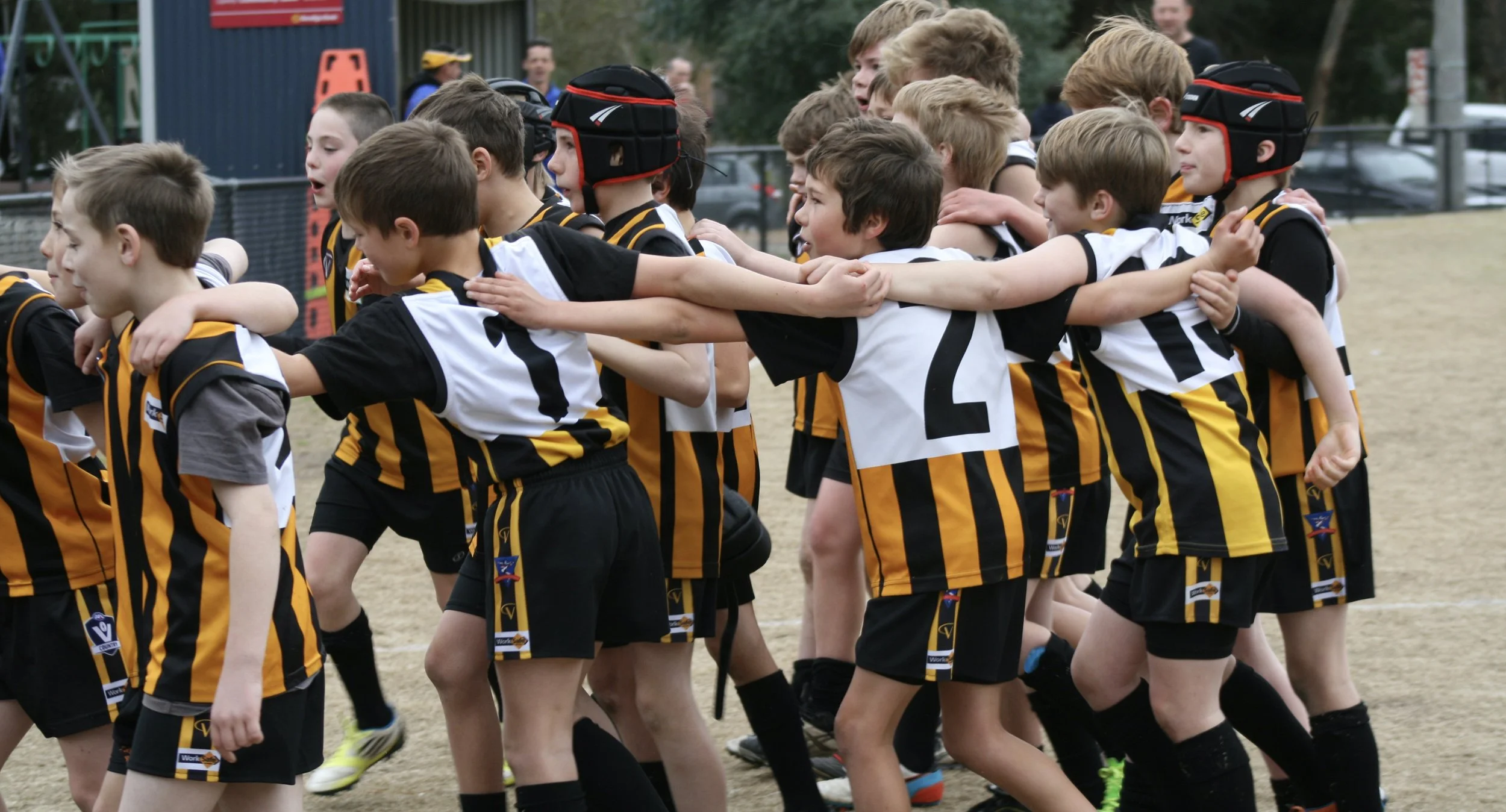[Un]reasonably outraged by “win at all costs” coaching
A ten-year-old boy signs up to play football because all his friends are doing it. Let’s call him Lenny. He’s not that athletic but he loves being outdoors and having fun with his mates. Lenny turns up to training on time every week, is keen to learn and takes on all the coach’s tips. He tries bloody hard. The club gives him a feeling of connectedness, a morale booster when things at school or at home don’t feel great. Being part of a team is more than just footy for him, it’s an extended family where people know his name, pat him on the back and compliment him on his growth as a player.
The team makes finals. Lenny is so proud to play. Then they make the big one: the Grand Final. Lenny is nervous on the day of the game but he knows he just has to do the best he can. He arrives at warmup time and the coach pulls him aside to let him know he’s starting on the bench today. It’s a really important game and they have to put their best team on the ground. You understand, right Lenny? It’s for the greater good. In his place is a fill-in player who has played for another team who were knocked out in an elimination final. This kid is their star player. Some weekends throughout the season he played two games so he could qualify to play in the Grand Final for both his own team and this one.
Lenny starts on the bench, his stomach in knots as he watches his team grab the ball after the first bounce. He continues to watch throughout the first quarter, stretching his legs and blowing into his hands to keep them warm. The siren goes at quarter time and he joins the huddle. The coach is yelling commands and the assistant holds a white board. Lenny’s name is on a magnet down the bottom, outside of the oval. He wants to ask if he’s going on in the second quarter but the coach is in win-at-all-costs mode.
Lenny sits through the second and the third quarter, losing hope of being part of the winning grand final team. Then at the start of the fourth quarter, the coach tells him he’s up. He runs on, almost forgetting how to play. He fumbles the first mark, then gives away a free kick. The scores are close but their team is winning. The runner approaches him and tells him to come off. He’s had four minutes of game time.
He sits and watches his team and as that final siren sounds, he runs to join the exuberant win. But he doesn’t feel part of the celebrations. Lenny gets his medal, just like everyone else, and sings the club song in the change rooms. His mates are covered in mud and sweat. He is pristine. The win is hollow. He knows if he’d played the entire game in place of the star, they may not have won, but he also feels excluded. Instead of that winning jubilation, he feels like a loser.
Lenny chooses not to play footy the next season telling people it’s not his thing. But it is his thing. He just wasn’t their thing.
This is a fictional account but I know it happens in junior sport. All. The. Time. I’ve witnessed it in football, basketball and netball. I’ve been outraged about it but as I’m not willing to coach, there is no platform to lodge my objection to this kind of culture. We’ve been lucky and not had to deal with our own kids being left out, but I’ve seen it happen to others on more than one occasion and the injustice of it a junior level spikes my blood pressure. Who are these coaches who think winning at all costs is more important than the huge range of benefits team sports can give kids? If a kid is so good that he will go on to play state, national and Olympic level sport, then I am confident he will do that playing in his core team each week and not stealing the spot of another kid.
I’m competitive at my core but not when it demotivates a child. Not when their feelings of belonging and confidence are impacted by coaching decisions. Life is unfair and all of that, and yes, team sports teach our kids great lessons in resilience and leadership, in regulating emotions, building responsibility and collaborating. But for coaches to treat junior sport as a forum to live vicariously through the star players is not only sad but dare I say, incredibly immature and short sighted. Balancing competitiveness with inclusivity is crucial for coaches to ensure all players feel valued and have a chance to contribute.
What do you think? Would you have benched Lenny? Is this a naive way of looking at team sports?
Join the conversation on Substack.
Kx


